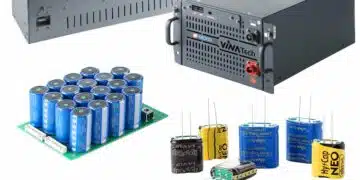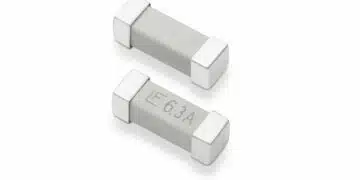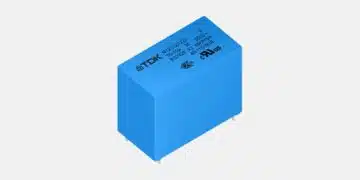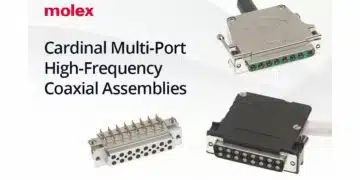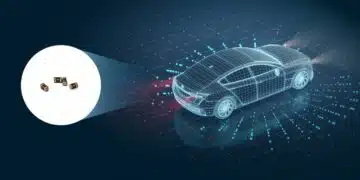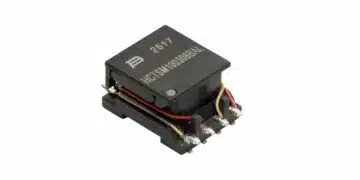Source: Skeleton news
Grossröhrsdorf, Germany, 22nd of August 2019. Skeleton Technologies, the European market leader for ultracapacitors and energy storage systems for transportation and grid applications, will supply ultracapacitor systems to Škoda Electric, a traction equipment manufacturer, for 114 trams to be delivered by Škoda Transportation to Mannheim, Heidelberg, and Ludwigshafen in Germany.
The ultracapacitor system recuperates the braking energy of the trams and uses it for re-acceleration, saving energy and decreasing costs. Ultracapacitors are ideal for this application due to their high efficiency, reliability, and ability to recharge in seconds.
“Skeleton Technologies brings the necessary quality mindset to critical applications. The highest power density and efficiency in the industry provides us with a very clear competitive advantage. We have worked together with Skeleton Technologies to develop the most efficient energy storage solution for modern trams, keeping in mind the power restrictions for grid infrastructure in a number of cities around Europe”, said Stanislav Wizur, Škoda Electric Strategic Purchasing.
The Škoda Electric traction delivery to Škoda Transportation Mannheim project is further proof that Skeleton Technologies’ ultracapacitors will be the key enabler for smart city transportation systems in Germany and across the globe. The new system uses the most advanced ultracapacitor management software to further increase the lifetime of the modules.
“Škoda has an excellent track record in innovative and energy-efficient trams, and ultracapacitors are a perfect fit for the locomotive industry due to their ability to capture braking energy in seconds, their high efficiency, and their long lifetime.
In 2019, we plan to make public announcement for additional locomotive projects currently in the works. Projects like these show that we do not need to go to China or the United States for battery and ultracapacitor production. Skeleton has proven that energy storage manufacturing is alive and well in Europe, and European companies can work together to bring huge benefits to the European industry and market”, said Skeleton Technologies CEO Taavi Madiberk.
About Skeleton Technologies
Skeleton Technologies is the global leader in graphene-based ultracapacitors and energy-storage systems. We deliver high power, high energy, reliable and long-life storage solutions across the industry. Through the use of patented ‘curved graphene’, we have achieved global breakthroughs in ultracapacitor performance and successfully commercialized our ultracapacitors, in trucks, buses, and grid applications.
Since our foundation in 2009, we have raised over 51 M EUR to support manufacturing scale-up in Germany and in Estonia and grown our headcount from 4 to 115 people. Our ultracapacitors deliver twice the energy density and 4 times the power density offered by other manufacturers. Our current customer base ranges from leading Tier One automotive firms and industrial equipment OEMs to truck fleet operators and aerospace prime contractors.
About Škoda Electric
Škoda Electric is a leading world manufacturer of electric drives and traction motors for trolleybuses, tramways, locomotives, suburban train units, metro, mine cars etc. and it continues the many years of tradition of electrical engineering production in Plzeň, which was commenced in 1901. The high technical level of Škoda Electric products, long-standing experience with manufacture and the excellent quality of technology along with high productivity of employees offer effective conditions for successful production intended for both domestic and foreign markets.


